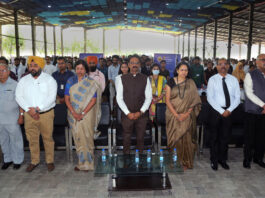The date was July 29, 2020, when the Union Cabinet approved and announced the New Education Policy, a change in the education policy after 34 long years, since 1986, to make the education system of India apt to the 21st century. Some changes were necessary, and here it is! The draft New Education Policy was 2019 was made public in June 2019 and was open for suggestions till 31st July 2019. Keeping in mind the suggestions and criticism, the Union Ministry made changes in it and thus formed the New Education Policy 2020, which aims at establishing “India as a global knowledge superpower” soon.
How it affects school students

- The traditional 10 + 2 system of the Indian Education System is done with and is replaced by a 5+3+3+4 system that will help the students to have a less hectic and more riveting school life.
- The students up to class 8 will have to sit in exams only thrice, in grades 3, 5, and 8. Assessments in other classes will be more of “competency-based” rather than a traditional pen and paper type.
- The Government wants to bring in a syllabus that would look after a holistic development in students rather than making them memorize tons of answers. That’s precisely the reason why vocational courses will be introduced for students of class 6-8, which includes working as an intern under local experts for courses such as carpentry, electrical work, metalwork, and many more.
- Coding has been introduced since class 6 to develop their intellectual thinking and reasoning skills.
- The rigid separation between various streams has been done away with, and students can choose subjects as per their interest. The board exams of 10th and 12th will take a course that will promote “holistic development” among the students.
- The Right to Education now covers students in the age group of 3 to 18 years of age, and the government will provide free education to all those in the age bracket.
How it affects the college students

- There will be a common entrance test conducted by the National Testing Agency (NTA) for admission to universities.
- The MPhil course will no longer exist, and all higher educational institutions, except legal and medical institutions, will be governed by a single regulatory body, with the same regulations for both the governmental and private educational institutions throughout India.
- Like those in schools, students in colleges also have the option to choose from a wide range of subjects apart from their core ones, so that they can read what they like.
- The credit transfer policy has also been introduced in the colleges and universities so that he/she can continue their studies when they like and pick up from where they had left.
But the interesting fact is that Lovely Professional University has been practicing some of the reforms for many years.
- With a lot of labs and modern infrastructure, the students of Lovely Professional University are being projected towards hands-on experience and in-depth knowledge of the course they are in, enabling them to experience what 21st-century educational system should look like.
- LPU follows a schedule that enables students to pursue their hobbies and extra-curricular activities. It enables the students to have a perfect balance in life and develop their skills in any domain they like.
- Various clubs and the DSW organize numerous events throughout the year that involve the active participation of the students, providing them with skills such as teamwork and leadership qualities that, in turn, cater to their holistic development.
- Credit transfer program and flexibility in the changing, of course, is something that LPU has been practicing for years. It enables the students to try out and find the best career option for them, depending on their interests and skills. Also, LPU offers a wide range of minors to choose from, which is indeed in resonance with the dilution policy adopted the cabinet.
The current spending on the educational sector in India is currently standing at 4.6% and is aimed to reach 6% soon. By 2035, the government wants to pull up the enrolment ration in higher education to at least 50% from the current 26.3%. The policy also proses the higher educational institution to move towards more all-round development and aims to add 3.5 crore new seats to the higher educational institutions.
The New Education Policy 2020 is an appreciable initiative taken by the government that will make exponential changes in the way Indian Education System had been viewed to date. The only barrier between the policy and its benefits is proper implementation, that when taken care of, would revolutionize the Indian Education System.




